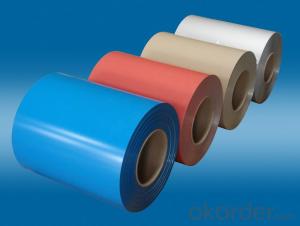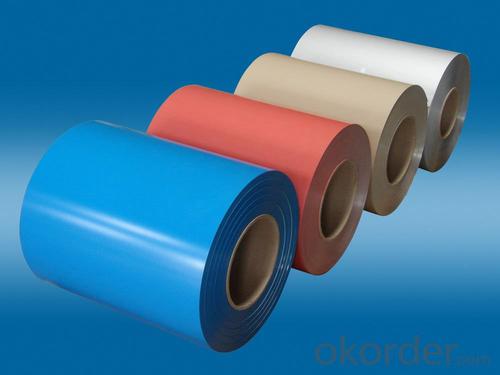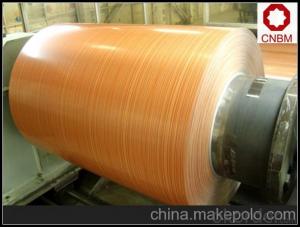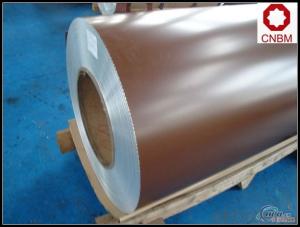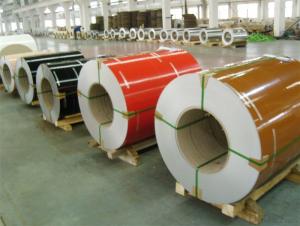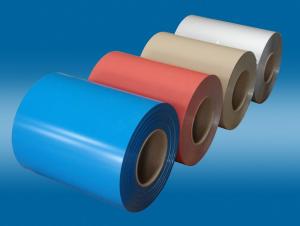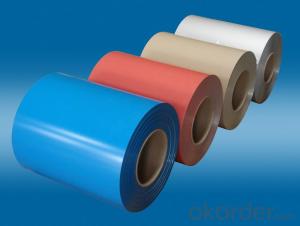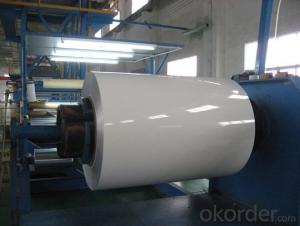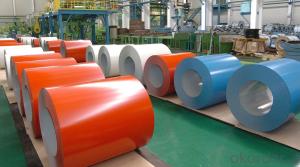Aluminum Coil Canada - AA1100 Prepainted Aluminum Coils for Construction
- Loading Port:
- Shanghai
- Payment Terms:
- TT OR LC
- Min Order Qty:
- 5 m.t.
- Supply Capability:
- 10000 m.t./month
OKorder Service Pledge
OKorder Financial Service
You Might Also Like
Specification
1.Structure of AA1100 Prepainted Aluminium Coils Used for Construction Description
AA1100 Prepainted Aluminium Coils Used for Construction are of a wide range of colors, which give wonderful appearance no matter in residential and commercial constructions or great exhibition centers.
AA1100 Prepainted Aluminium Coils Used for Construction have been widely used in the fields of construction and decoration, electronic applications, lighting decoration, air-condition air pipes, sandwich panels and drainages etc.
2.Main Features of AA1100 Prepainted Aluminium Coils Used for Construction
• Superior quality of raw material
• Reasonable and stable chemical composition
• Accurate tolerance
• Goode mechanical property
3.AA1100 Prepainted Aluminium Coils Used for Construction Images
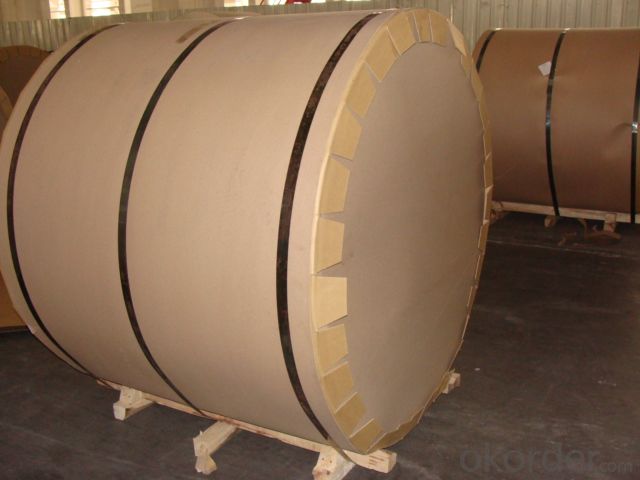
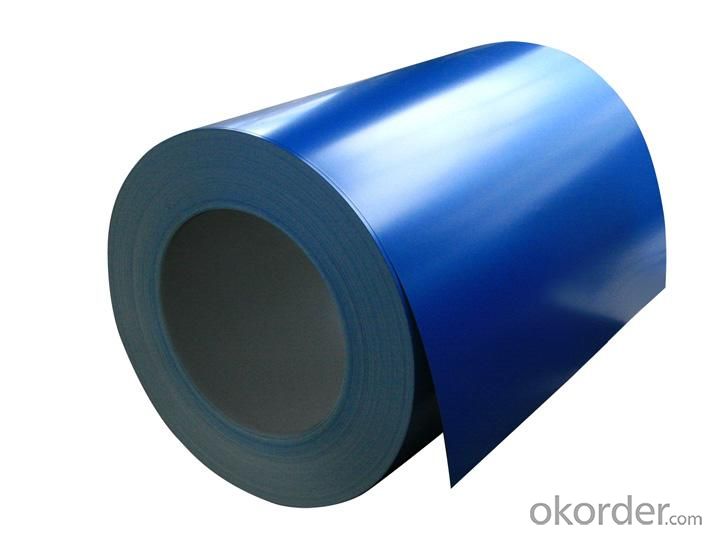
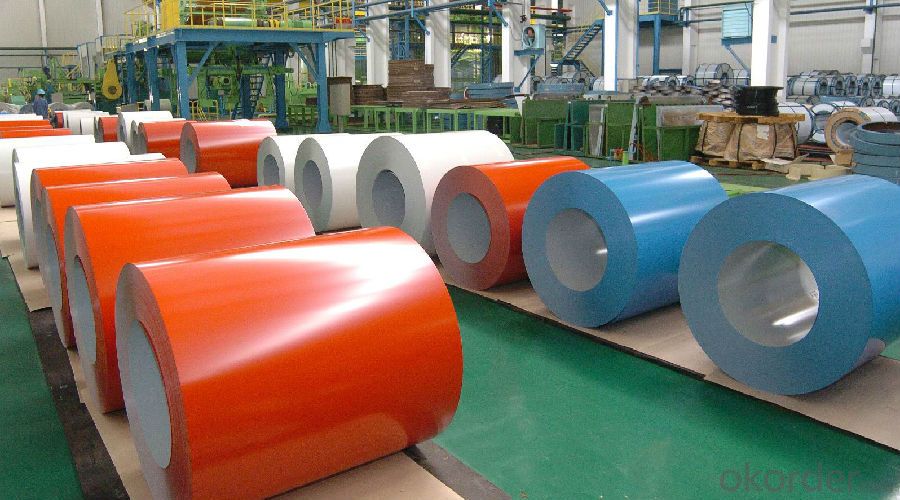
4.AA1100 Prepainted Aluminium Coils Used for Construction Specification
Alloy | AA1100 |
Temper | H14,H16,H18,H22,H24,H26,H32,O/F |
Thickness | 0.03mm-3.0mm |
Width | 30mm-1700mm |
Coating | PE,PVDF,Epoxy |
Painting Thickness | Standard 16-25 Mic, max 40 Mic |
Color | According to RAL colors or customers' samples |
Standard | GB/T 17748-1999 |
5.FAQ:
What is the quality standard?
---Usually our standard is GB3880-2006
What is the largest width?
---It is 2000mm
What is the MOQ?
---Usually we can accept 80 tons.
- Q: What are the typical lead times for ordering aluminum coils?
- The typical lead times for ordering aluminum coils can vary depending on various factors such as the supplier, quantity, customization requirements, and current market conditions. However, on average, lead times can range from a few weeks to a couple of months. It is advisable to contact the specific supplier for accurate information regarding their lead times.
- Q: Can the displacement sensor be used for real-time measurement of the aluminum coil thickness?
- You are suggested to use eddy current displacement sensor KD2306 to measure aluminum.
- Q: What are the different types of alloys used for aluminum coils?
- There are several types of alloys commonly used for aluminum coils, including 3003, 5052, and 6061. Each alloy has its own unique properties and applications in industries such as automotive, construction, and aerospace.
- Q: What is the density of aluminum coils?
- The density of aluminum coils typically ranges from 2.6 to 2.8 grams per cubic centimeter.
- Q: Are there any special considerations for handling and storing aluminum coil scraps?
- Yes, there are special considerations for handling and storing aluminum coil scraps. It is important to segregate aluminum scraps from other metals to prevent contamination. They should be stored in a dry and well-ventilated area to avoid moisture absorption and potential corrosion. Additionally, proper labeling and organization are crucial to ensure easy identification and retrieval of the scraps when needed.
- Q: Are aluminum coils suitable for pharmaceutical vial caps?
- Yes, aluminum coils are suitable for pharmaceutical vial caps. Aluminum is a commonly used material in the pharmaceutical industry due to its excellent barrier properties, corrosion resistance, and ability to be easily sterilized. It provides a tight seal, ensuring the integrity and safety of the vial contents. Additionally, aluminum coils can be easily formed into the desired shape and size for vial caps, making them a reliable choice for pharmaceutical packaging.
- Q: How do aluminum coils compare to copper coils in terms of conductivity?
- The conductivity properties of aluminum coils and copper coils differ. Copper is renowned for its exceptional electrical conductivity, making it the preferred option for applications where maximum efficiency is vital, like electrical wiring and motor windings. In comparison, copper coils possess a considerably higher electrical conductivity than aluminum coils. Consequently, copper coils can transmit electricity more efficiently, resulting in decreased power losses and enhanced overall performance. Conversely, aluminum coils exhibit lower electrical conductivity when compared to copper coils. Although aluminum is still a capable conductor of electricity, it is not as efficient as copper. This implies that aluminum coils may experience increased power losses and reduced efficiency in contrast to their copper counterparts. Nevertheless, aluminum coils possess their own advantages in certain applications, such as being lighter and more cost-effective. Ultimately, the choice between aluminum and copper coils hinges on the specific requirements of the application, with copper being favored for its superior conductivity properties.
- Q: Are aluminum coils suitable for pharmaceutical vial caps?
- Pharmaceutical vial caps can indeed be made from aluminum coils. When it comes to pharmaceutical packaging, aluminum is highly favored thanks to its exceptional barrier properties. These properties effectively shield the vials' contents from moisture, oxygen, and other harmful substances. Aluminum coils can be easily molded into caps of various sizes and shapes, accommodating different types of vials. Another advantage is that aluminum is a lightweight material, which makes transportation and handling hassle-free. Additionally, aluminum is resistant to corrosion, ensuring that the vial caps remain intact throughout storage and usage. In summary, due to their barrier properties, versatility, and durability, aluminum coils are a suitable option for pharmaceutical vial caps.
- Q: Is it possible to use a welding process to join two pieces of aluminum coil?
- <p>Yes, you can weld two pieces of aluminum coil together, but it requires specific techniques and equipment. Aluminum welding is different from steel welding and requires a TIG (Tungsten Inert Gas) or MIG (Metal Inert Gas) welding process. It's crucial to use a clean, dry aluminum filler rod and maintain a clean, oxide-free surface on the aluminum. Additionally, a shielding gas like argon is necessary to protect the weld area from oxidation. Special precautions must be taken due to aluminum's high thermal conductivity and reactivity, so it's recommended to have experience or professional guidance when welding aluminum.</p>
- Q: What are the potential applications of pre-painted aluminum coils?
- Due to their versatility and durability, pre-painted aluminum coils offer a wide range of potential applications. In the construction industry, they can be utilized for roofing and cladding, providing an appealing and protective finish for residential and commercial buildings. Additionally, their lightweight nature facilitates easy installation and transportation. Another field where pre-painted aluminum coils can be beneficial is the manufacturing of appliances and electronics. They can be used to create outer casings for various appliances, like refrigerators, ovens, and air conditioners, offering a smooth and visually pleasing appearance. Furthermore, the aluminum material itself possesses excellent heat dissipation properties. In the automotive industry, pre-painted aluminum coils find applications as well. The durable coating safeguards the vehicle's surface from scratches, UV rays, and corrosion, while the lightweight aluminum contributes to improved fuel efficiency and performance. The signage industry commonly employs pre-painted aluminum coils for both outdoor and indoor signage. The coating provides a vibrant and long-lasting finish, making it suitable for diverse signage applications, including billboards, store signs, and traffic signs. Moreover, pre-painted aluminum coils can be utilized in the manufacturing of furniture and fixtures. The coating adds a decorative touch, while the aluminum material ensures strength and stability. This makes them suitable for items such as cabinets, shelves, and decorative panels. In conclusion, the applications of pre-painted aluminum coils are vast and diverse, making them suitable for various industries, including construction, manufacturing, automotive, signage, and furniture. Their versatility, durability, and attractive finish make them a valuable resource across different sectors.
Send your message to us
Aluminum Coil Canada - AA1100 Prepainted Aluminum Coils for Construction
- Loading Port:
- Shanghai
- Payment Terms:
- TT OR LC
- Min Order Qty:
- 5 m.t.
- Supply Capability:
- 10000 m.t./month
OKorder Service Pledge
OKorder Financial Service
Similar products
Hot products
Hot Searches
Related keywords
